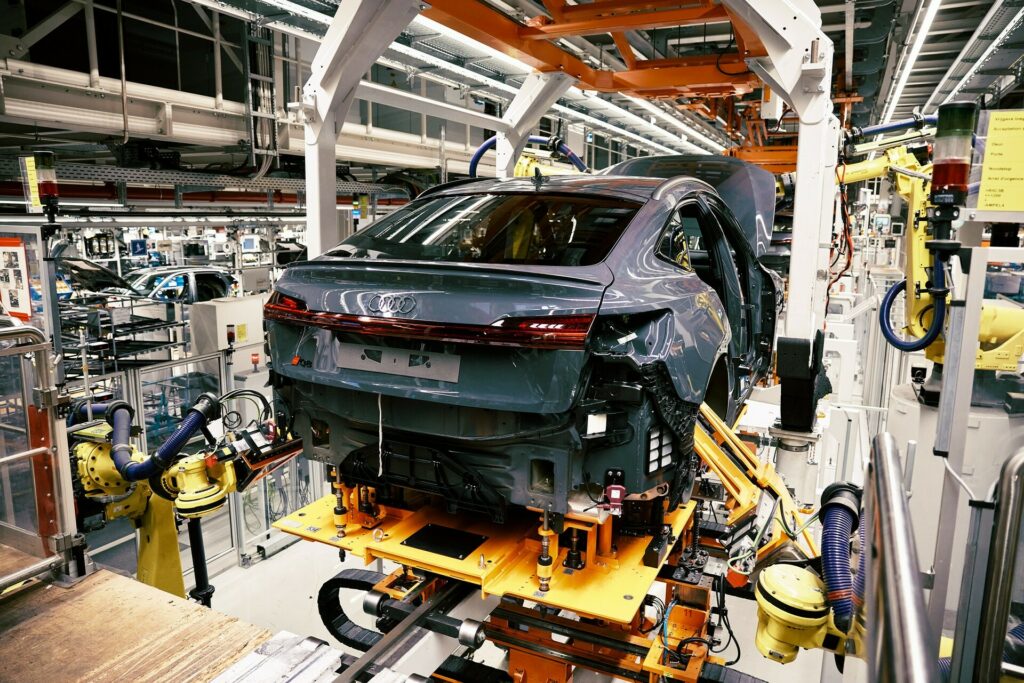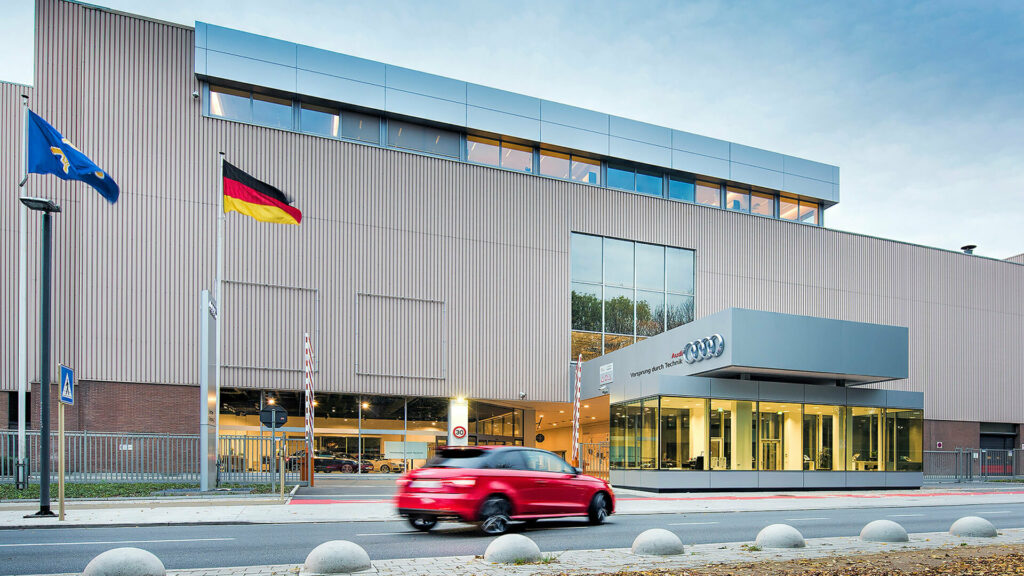- Protestors reportedly stormed a meeting between union officials and management at Audi’s Brussels plant.
- Police were called to remove approximately 150 people and some protestors claimed they were hit by authorities.
- The move comes after Audi announced Q8 e-tron production would end early next year and stopped looking for a buyer to purchase the plant.
Earlier this week, Audi said the “active search for investors has come to an end” after failing to find a suitable buyer for their Brussels plant. That effectively spelt doom for the facility as production of the Q8 e-tron is slated to end early next year.
The situation between workers and the automaker is understandably tense as roughly 3,000 people are slated to lose their job in a matter of months. Things finally spilled over on Wednesday as Euronews is reporting protestors interrupted a meeting between union representatives and plant management.
More: Audi’s Brussels Plant To Shut Down In VW Group’s First European Closure In Decades
This reportedly pushed company officials to call police and have them remove protestors. Several people claimed police responded with heavy handed tactics as they “barged in like cowboys, hitting us with batons.”
Union officials didn’t go quite that far, but Euronews quoted the Permanent Secretary of the General Labor Federation of Belgium (FGTB) as saying “This isn’t how you conduct peaceful talks. Workers are simply asking for a fair social plan” … that is “proper compensation for the work they’ve done.”
Germany’s Spiegel described the situation as a riot and reported that around 150 people stormed the meeting and prevented people from leaving. They added that fireworks were set off and one union member was “slightly injured” in the incident.
There’s little doubt tension will remain high until a compensation agreement is finalized between the two sides. Even then, it wouldn’t be surprising to see continuing anger at the impending plant closure.
As we have previously reported, Audi moved to cease production of the Q8 e-tron early following an “intensified drop in demand.” The company also mentioned long-standing structural challenges at the Brussels site including high logistics costs and a plant layout that is difficult to change due to its location near the city center.





